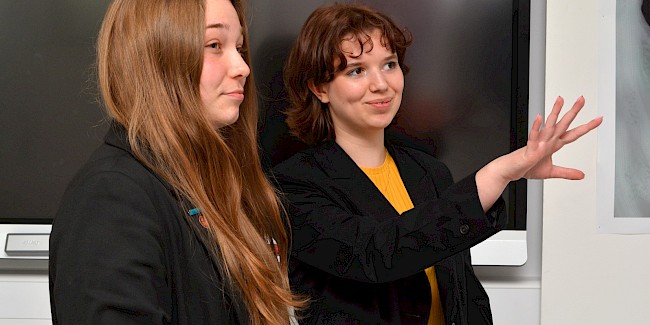Key Stage 4 Sociology
Curriculum Overview
Students at Key Stage 4 have two lessons a week studying the AQA GCSE Sociology qualification
| | Term 1 | Term 2 | Term 3 | Term 4 | Term 5 | Term 6 |
|---|
| Year 10 | The Sociology of Education | The Sociology of Education | Research Methods in Social Science | Family in the UK | Family in the UK | Applied Research Methods |
| Year 11 | Crime and Deviance | Crime and Deviance | Inequality and Social Stratification | Inequality and Social Stratification | Revision Resources/ Exam Practice |
Year 10
Initially students will learn the core principles of the Sociological approach and the three main theoretical schools used to understand social phenomena. They will then explore the institution of education, questioning its overall purpose, how well it achieves its goals, how genders, social classes and ethnicities experience it differently and debate whether the current UK educations system is fit for purpose. Each section of this will be constantly linked back to the core principles, the theoretical schools and assessed through regular and tailored examination style questions.
In the third term students will learn about Sociology’s primary methods for collecting data, as well as how data is dissected, assessed and evaluated. Each of these methods will be learnt through their application to the education setting covered in the first two terms and assessed using exam style questions.
For the fourth and fifth term, students investigate how the institution of the British family has changed, including the liberation of women, ethnic diversification, new laws, shifting social expectations, the rise in divorces and the fall of marriage. Similarly, links will be made back to the core principles, the theoretical schools and assessment carried out through regular examination style questions.
In the final term students will recover research methods, now applying them to the topic of families. They will then consolidate their knowledge and revise for the end of Year Mock examinations. In the run up to these mocks, students will be guided on how to create and use revision resources for the first half of the GCSE course.
Year 11
For the first two terms of the second-year student will learn how the criminal justice system operates in the UK, some of the causes of crime and how they are policed and punished including their differences for genders, classes and ethnicities. They will apply the core principles of Sociology and the main theoretical approaches to these topics and debate whether the criminal justice systems are working well and how they can be improved. The application of research methods and the use of examination style assessment is integrated into the teaching of this unit as it is delivered.
For the third and fourth terms of the year students will move on to their final unit. This unit is the broader and more encompassing subject of social stratification, particularly social class and how individual’s life chances differ between genders, socio-economic groups, ethnicities and regions. They will then address poverty, welfare and the mechanisms of political power from a largely theoretical standpoint, integrating the learning from the previous units to create a strong overview of the structure of contemporary British Society.
The final term of Year 11 is spent creating revision resources for the latter two units. Students will practice a range of examination questions and will fine tune their understanding with the help of their specialist class teacher.
Assessment at GCSE
- Paper 1: 50% of qualification. 1 hour and 45 minute examination made up of two topics, Families and Education. There are a series of short answer questions and two essay questions on each topic. Research Methods and Theory questions are integrated into each unit.
- Paper 2: 50% of qualification. 1 hour and 45 minute examination made up of two topics, Crime and Social Stratification. There are a series of short answer questions and two essay questions on each topic. Again, Research Methods and Theory questions are integrated into each unit.
Further Reading/Resources
Class Textbook:
- AQA GCSE (9-1) Sociology, Updated Edition Paperback, (2019), David Brown.
Examination Preparation Materials:
- AQA GCSE 9-1 Sociology Workbook (Collins GCSE 9-1 Revision), (2018), Collins GCSE.
- Grade 9-1 GCSE Sociology AQA All-in-One Complete Revision and Practice (with free flashcard download) (Collins GCSE 9-1 Revision) Paperback, (2017), Collins GCSE.
Wider Reading Materials:
- Essential Concepts in Sociology Paperback – 24 Mar, (2017), A. Giddens, P. Sutton.
- Stamped: Racism, Antiracism, and You: A Remix of the National Book Award-winning Stamped from the Beginning Hardcover – 16 April 2020, (2020), J. Reynolds, I. Kendi.
- Feminists Don’t Wear Pink (and other lies): Amazing women on what the F-word means to them, (2018), S. Curtis.


